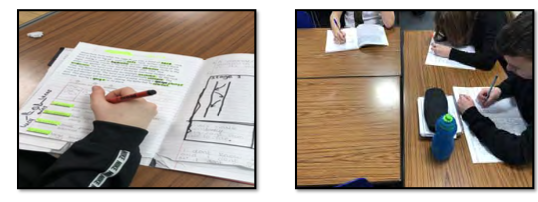Geography
What will I learn?
In Geography, we study the physical environment around us and the interactions between humans and the natural world. Some of the key questions we seek to answer in S3 Geography include:
Why are average global temperatures on the rise? Why are flooding events becoming more serious? Why are millions of African people living in poverty, and what can be done to help? How have rivers created Scotland’s stunning landscapes? What does Geography have to do with fashion? What deadly diseases affect large parts of the world and why?
How will I learn?
Learning in S3 Geography involves outdoor learning (fieldwork), group tasks, research projects, role play, simulation games, online research, map reading, creating diagrams that explain geographical processes and note taking from presentations/ documentaries.
How will I be assessed?
Students will be asked to demonstrate their newly developed knowledge at the end of each unit. This assessment could take the form of a research reports, creating and delivering presentations, answering a number of exam-style questions or multiple choice quizzes.
Career Opportunities
At its core, Geography is an interdisciplinary subject, meaning it connects different parts of many different subjects. Therefore, the skills gained from studying Geography are broad and diverse. The possible careers available to a student of Geography are equally broad and diverse. They might include careers like Environmental Consultant, Geologist, Renewable Energy Expert, University Lecturer, Journalist, Land Surveyor or Volcanologist, to name but a few.
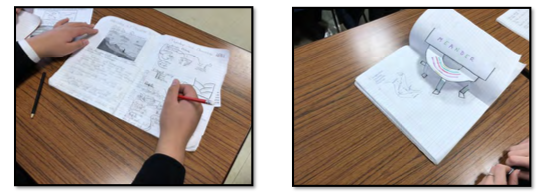
History
What will I learn?
In History we will learn about important events which occurred during the Twentieth Century. This includes a study of war, looking at the technological developments of warfare through WW1, WW2 and the Vietnam War. We will learn about key events in History such as the assassination of JFK and the sinking of the Titanic. We will also explore important developments and celebrations during this time.
How will I learn?
Pupils will learn through a variety of resources including video sources, group work, discussion based tasks and textbooks. Pupils will also have the opportunity to develop transferable skills within the course such as communication, problem solving and ICT skills.
How will I be assessed?
History will use a variety of assessment methods to support pupils in their development of skills. These methods include:
- Peer and self-assessment
- Written assessments can take many formats, presentations, posters or extended written answers
- Thorough questioning and regular feedback from the teacher
Career Opportunities
Students that enjoy History could progress to National course next year which can lead to a Higher qualification. Careers paths in History, Politics, Journalism, Teaching and other related disciplines could be considered.
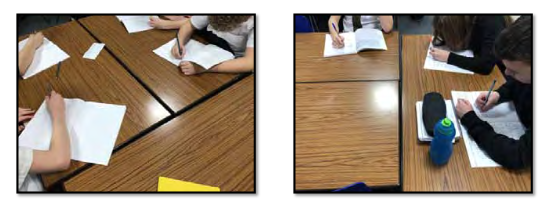
Modern Studies
What will I learn?
There are 5 units that are covered in S3 Modern Studies:
- Under-development in Africa (Barriers to development, Child Soldiers, Aid)
- Health and Wealth Inequality in the UK
- Brazil (Political System, Inequalities, International Issues)
- Terrorism (Terror Groups, Counter-terrorism strategies)
- European Union and Brexit
How will I learn?
Learning in Modern Studies involves a range of methods and approaches including regular discussions of current affairs, making notes from presentations, reading resource sheets, online- research, analysing sources of evidence and group presentation tasks.
Students are expected to gain knowledge of current issues but are also asked to evaluate and draw conclusions from new information provided to them.
Learning in Modern Studies involves a range of methods and approaches including regular discussions of current affairs, making notes from presentations, reading resource sheets, online- research, analysing sources of evidence and group presentation tasks.
Students are expected to gain knowledge of current issues but are also asked to evaluate and draw conclusions from new information provided to them.
How will I be assessed?
Modern Studies uses a variety of assessment methods to support pupils in their development of skills and concepts. These methods include:
- Peer and self-assessment.
- End of Unit Assessment both written and aided by ICT.
- Extended writing pieces using research of a given topic.
- Regular feedback from the teacher with regard to class activities
Career Opportunities
Modern Studies provides a chance to learn about modern UK life. The insights gained are of considerable value in a wide range of careers including online and broadcast media, publicity, social work, law and law enforcement, politics and journalism.
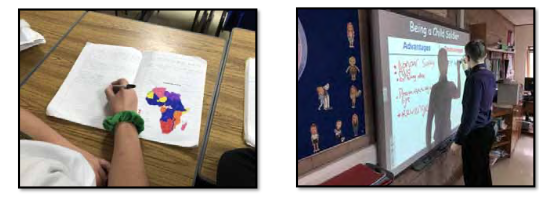
Religious, Moral and Philosophical Studies
What will I learn?
The course will cover three main areas: –
World religion: – Students will study Sikhism in Scotland, Sikh beliefs & practices in order to get an understanding of different views and beliefs. We often visit the Gurdwara in Glasgow to see beliefs in action.
Moral issue: – Students study morality, how do we know what’s right or wrong? We will learn about the benefits and difficulties of Embryo Research and how that impacts on individuals and society as a whole.
Philosophy of religion: – Students study the Problem of Evil & Suffering which is a big philosophical questions and examine different responses to these questions in order to clarify their own views.
How will I learn?
Students will engage with a range of activities in the S3 RMPS course. Students are given the opportunity to take responsibility for their own research. Students will also be given the chance to develop their creativity through discussion, essay skills and artwork. ICT will be used to enhance learning. Cooperative learning will enable pupils build upon their listening and talking skills. Active learning will be used to encourage participation and aid different types of learners.
How will I be assessed?
RMPS uses a variety of assessment methods to support pupils in their development of skills and concepts. These methods include:
- Peer and self-assessment
- End of Unit Assessment both written and aided by ICT
- Regular feedback from the teacher with regards to class activities
Career Opportunities
Many of our students have gone on to do a wide variety of jobs. It is a benefit to anyone working with the general public. Some have trained to be philosophy or RMPS teachers whilst others have gone into the medical profession or law. A large number of our students go into careers involving, caring professions, the media, the armed forces, psychology and primary school teaching. RMPS qualifications are accepted by all colleges and universities.
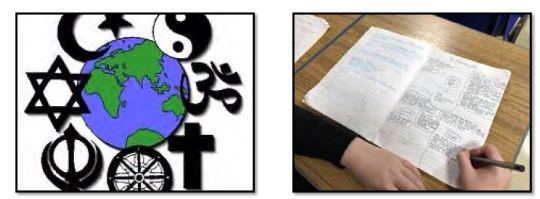
General Social Subjects
What will I learn?
In General Social Subjects we will study elements of Geography, History, Modern Studies and RMPS. Pupils will study a variety of topics from WW1 and Terrorism to Ancient Egypt and Brazil. Within these subjects’ pupils will be able to develop many transferable skills in areas such as communication, team work and problem solving.
How will I learn?
Pupils will learn through a variety of resources including video sources, group work, discussion based tasks and textbooks. Pupils will also have the opportunity to develop their literacy and ICT skills.
How will I be assessed?
General Social Subjects will use a variety of assessment methods to support pupils in their development of skills. These methods include:
- Peer and self-assessment
- Written assessments can take many formats, presentations, posters or extended written answers
- Through questioning and regular feedback from the teacher
Career Opportunities
General Social Subjects gives our students the opportunities to experience a range of different skills and experiences which can help students follow the career opportunities outlined in each individual Social Subjects page. This course would be perfect for students who are interested in different career paths from different Social Subjects.
